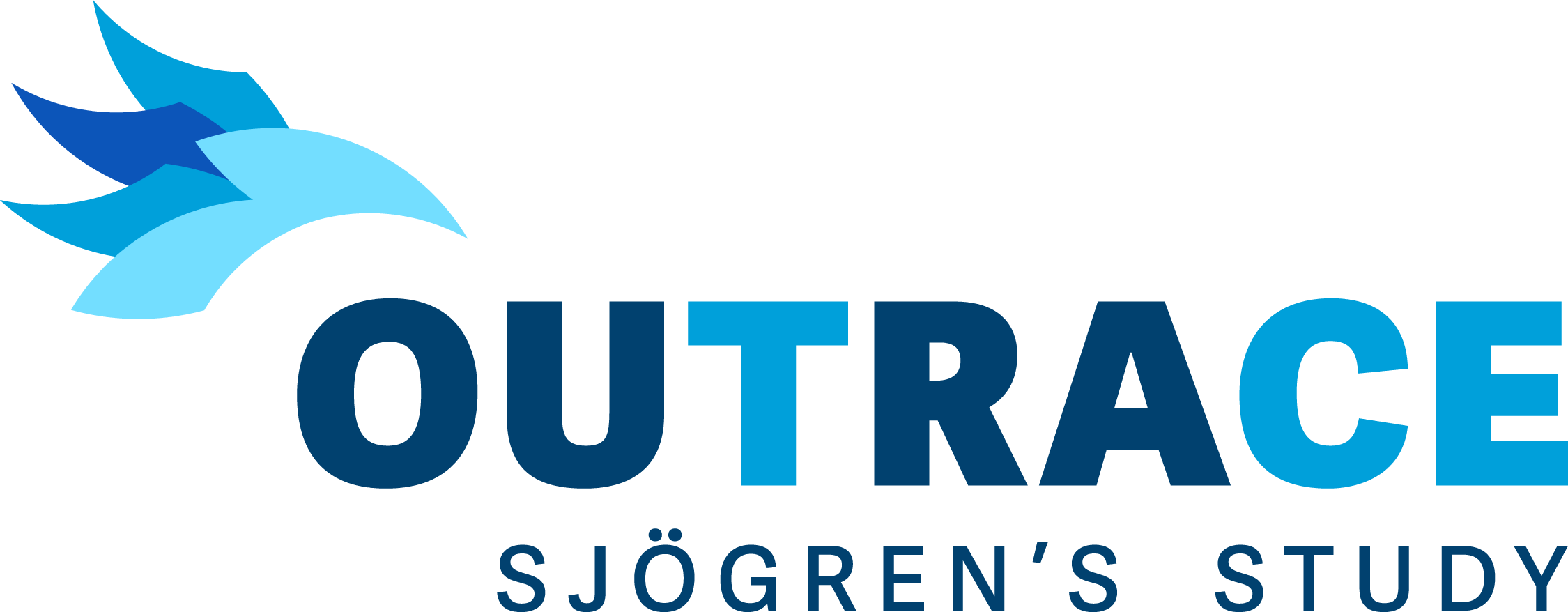

Where Speed Meets Strategy
By leveraging our deep expertise in immune system modulation and adopting a “thriller or killer” approach to early discovery, Cullinan Therapeutics’ teams rapidly and deliberately determine the optimal therapeutic methods and the most high-impact targets to pursue. This approach has resulted in a pipeline of highly differentiated molecules with the potential to be first- or best-in-class treatment options.
In partnership with trial investigators, industry and healthcare experts, and patient advocacy groups, we have built a pipeline of assets with the potential to change standards of care across autoimmune diseases and cancer.
All of Cullinan Therapeutics’ assets are investigational and have not been approved by health authorities in any jurisdiction.
IMMUNOLOGy
Initial data in RA in Q2 2026 and repeat dosing data in Q3 2026
The OUTRACE trials are part of Cullinan’s comprehensive, global clinical development program for CLN-978, a novel, differentiated, and highly potent investigational CD19xCD3 bispecific T cell engager. CLN-978 is currently being studied in a Phase 1 clinical trial in Europe in patients with active, difficult-to-treat rheumatoid arthritis.
CLN-978 triggers redirected lysis of CD19-expressing target cells in vitro and in vivo. CLN-978 is engineered to achieve very high affinity binding to CD19 to efficiently target B cells, including those with very low CD19 levels. Small in molecular size (65 kDa), CLN-978 contains two single-chain variable fragments, one binding with very high affinity to the CD19 target and the other binding to CD3 on T cells, and a single-domain antibody binding to human serum albumin to extend serum half-life.
CLN-978 was developed by an internal Cullinan team and is a wholly owned asset. CLN-978 has the potential to offer a convenient, off-the-shelf, subcutaneously delivered therapeutic option for people living with rheumatoid arthritis.
Currently approved therapies can reduce symptoms of the disease and help protect the joints from damage. However, these therapies can result in chronic immune suppression, increasing infection and cancer risk, especially in elderly people with RA. Additionally, many patients stop responding or are not able to tolerate these treatments and remain with significant disease activity. The goal of our clinical trial is for patients to achieve low disease activity or even remission.
Initial data in SLE in Q2 2026
The OUTRACE trials are part of Cullinan’s comprehensive, global clinical development program for CLN-978, a novel, differentiated, and highly potent investigational CD19xCD3 bispecific T cell engager. CLN-978 is currently being studied in a global Phase 1b clinical trial in patients with moderate to severe SLE.
CLN-978 triggers redirected lysis of CD19-expressing target cells in vitro and in vivo. CLN-978 is engineered to achieve very high affinity binding to CD19 to efficiently target B cells, including those with very low CD19 levels. Small in molecular size (65 kDa), CLN-978 contains two single-chain variable fragments, one binding with very high affinity to the CD19 target and the other binding to CD3 on T cells, and a single-domain antibody binding to human serum albumin to extend serum half-life.
CLN-978 was developed by an internal Cullinan team and is a wholly owned asset. CLN-978 has the potential to offer a convenient, off-the-shelf, subcutaneously delivered therapeutic option for people living with SLE.
Currently approved therapies can reduce the symptoms of SLE. However, these therapies result in chronic immune suppression, increasing infection and cancer risk. Additionally, many patients stop responding or are not able to tolerate these treatments and remain with significant disease activity. The goal of our clinical trial is for patients to achieve low disease activity or even remission.
Initial data in Sjögren’s disease in Q4 2026
The OUTRACE trials are part of Cullinan’s comprehensive, global clinical development program for CLN-978, a novel, differentiated, and highly potent investigational CD19xCD3 bispecific T cell engager. CLN-978 is currently being studied in a global Phase 1 clinical trial in patients with active, moderate to severe Sjögren’s disease.
CLN-978 was developed by an internal Cullinan team and is a wholly owned asset. CLN-978 has the potential to offer a convenient, off-the-shelf, subcutaneously delivered therapeutic option for people living with Sjögren’s disease.
CLN-978 triggers redirected lysis of CD19-expressing target cells in vitro and in vivo. CLN-978 is engineered to achieve very high affinity binding to CD19 to efficiently target B cells, including those with very low CD19 levels. Small in molecular size (65 kDa), CLN-978 contains two single-chain variable fragments, one binding with very high affinity to the CD19 target and the other binding to CD3 on T cells, and a single-domain antibody binding to human serum albumin to extend serum half-life.
Currently, there are no approved medicines that treat Sjögren’s disease, but there are therapies that address dryness and other symptoms. No approved treatment has been shown to comprehensively slow disease progression or treat all aspects of Sjögren’s disease.
Genrix Bio initiated a Phase 1 study in China in patients with autoimmune diseases in Q4 2025 and initial data is expected in Q4 2026. Following completion of the study, Cullinan will conduct all further development of velinotamig in autoimmune diseases.
Velinotamig is an investigational bispecific antibody that can simultaneously bind to BCMA and CD3, redirecting cytotoxic T cells to target BCMA-expressing cells. Velinotamig has high affinity for BCMA and lower affinity for CD3, ensuring that the bispecific antibody recruits and activates T cells while minimizing non-specific T cell activation and reducing potential toxicity mediated by CD3 activation. Accumulated data support BCMA as a promising target in autoimmune diseases, offering a precise and potentially disease-modifying approach by eliminating self-reactive plasma cells that are pathogenic in certain autoimmune diseases, especially those diseases driven by long-lived plasma cells.
The growing prevalence of autoimmune diseases underscores the need for new, patient-friendly treatments that go beyond what is offered by current therapies.
ONCOLOGy
Rolling NDA submission initiated seeking accelerated approval in relapsed EGFR ex20ins NSCLC; completion of NDA submission expected in Q1 2026
REZILIENT1 is a pivotal Phase 2b trial assessing zipalertinib in patients with non-small cell lung cancer (NSCLC) harboring epidermal growth factor receptor (EGFR) mutations, with insertions at exon 20 (ex20ins) who have progressed after receiving prior systemic therapy, as well as in a separate cohort of patients progressing after prior treatment with a currently approved agent for ex20ins NSCLC.
Zipalertinib is an orally available next-generation investigational small molecule designed to target activating mutations in EGFR. The molecule was selected because of its ability to inhibit EGFR variants with ex20ins mutations, while sparing wild-type EGFR. Zipalertinib is designed as a next generation, irreversible EGFR inhibitor for the treatment of a genetically defined subset of patients with non-small cell lung cancer.
In January 2022, zipalertinib received Breakthrough Therapy designation from the FDA. Zipalertinib is being developed by Taiho Oncology, Inc., its parent company, Taiho Pharmaceutical Co., Ltd., and in collaboration with Cullinan Therapeutics, Inc. in the U.S.
Patients with NSCLC harboring EGFR ex20ins mutations have poorer outcomes than those with more common EGFR mutations, such as exon 19 deletions. While currently approved therapies for EGFR exon20ins-positive NSCLC have shown the ability to shrink tumors and delay disease progression, there remains a significant unmet need for oral therapies that are safer and more effective.
Parallel cohort study ongoing
REZILIENT2 is a Phase 2 parallel cohort study sponsored by Taiho Oncology, assessing zipalertinib in patients with non-small cell lung cancer (NSCLC) harboring epidermal growth factor receptor (EGFR) mutations, with insertions at exon 20 (ex20ins) or other uncommon mutations. Cohorts of the study include those who have progressed after receiving standard platinum-based chemotherapy and prior treatment with an ex20ins agent for their advanced disease, a first-line cohort of patients who have not received prior treatment for advanced or metastatic disease, and patients with active brain metastases and/or leptomeningeal disease (LMD).
Zipalertinib is an orally available next-generation investigational small molecule designed to target activating mutations in EGFR. The molecule was selected because of its ability to inhibit EGFR variants with ex20ins mutations, while sparing wild-type EGFR. Zipalertinib is designed as a next generation, irreversible EGFR inhibitor for the treatment of a genetically defined subset of patients with non-small cell lung cancer.
In January 2022, zipalertinib received Breakthrough Therapy designation from the FDA. Zipalertinib is being developed by Taiho Oncology, Inc., its parent company, Taiho Pharmaceutical Co., Ltd., and in collaboration with Cullinan Therapeutics, Inc. in the U.S.
Patients with NSCLC harboring EGFR ex20ins mutations have poorer outcomes than those with more common EGFR mutations, such as exon 19 deletions. While currently approved therapies for EGFR exon20ins-positive NSCLC have shown the ability to shrink tumors and delay disease progression, there remains a significant unmet need for oral therapies that are safer and more effective.
Phase 3 1L study actively enrolling; complete enrollment expected in H1 2026
REZILIENT3 is a global Phase 3 trial sponsored by Taiho Oncology, evaluating the combination of zipalertinib and chemotherapy as a potential first-line treatment for adults with previously untreated locally advanced or metastatic non-small cell lung cancer (NSCLC).
Zipalertinib is an orally available next-generation investigational small molecule designed to target activating mutations in epidermal growth factor receptor (EGFR). The molecule was selected because of its ability to inhibit EGFR variants with exon 20 insertion (ex20ins) mutations, while sparing wild-type EGFR. Zipalertinib is designed as a next generation, irreversible EGFR inhibitor for the treatment of a genetically defined subset of patients with non-small cell lung cancer.
In January 2022, zipalertinib received Breakthrough Therapy designation from the FDA. Zipalertinib is being developed by Taiho Oncology, Inc., its parent company, Taiho Pharmaceutical Co., Ltd., and in collaboration with Cullinan Therapeutics, Inc. in the U.S.
Patients with NSCLC harboring EGFR ex20ins mutations have poorer outcomes than those with more common EGFR mutations, such as exon 19 deletions. While currently approved therapies for EGFR exon20ins-positive NSCLC have shown the ability to shrink tumors and delay disease progression, there remains a significant unmet need for oral therapies that are safer and more effective.
Dose escalation update in H2 2026. Dose expansion cohorts to initiate in Q2 2026 and complete enrollment in Q4 2026.
CLN-049 is an investigational bispecific T cell engager designed to simultaneously bind the extracellular domain of FLT3 on acute myeloid leukemia (AML) cells and the CD3 epsilon T cell receptor subunit on T cells. FLT3 is a promising target as this mutation plays a key role in the proliferation of leukemic cells. FLT3 (wildtype or mutant) is detected on AML cells in more than 80% of patients.
CLN-049 is currently being investigated via intravenous administration.
CLN-049 has received Fast Track designation from the U.S. FDA for the treatment of relapsed/refractory AML.
In some people, MDS can progress into AML. Currently approved treatments for MDS and AML can delay disease progression and in some cases lead to remission, particularly in patients with specific genetic profiles or who are eligible for intensive therapy. However, a significant unmet need remains for a broadly applicable and accessible therapy that produces high and durable response rates. Patients are typically diagnosed at an average age of 68 and have a five-year survival rate of 10% or less in the relapsed setting. Currently, the only potential curative therapy for AML is intensive chemotherapy with or without hematopoietic stem cell transplantation, which remains out of reach for older patients due to the high risk of therapy-related mortality.
Phase 1 study ongoing
CLN-049 is an investigational bispecific T cell engager designed to simultaneously bind the extracellular domain of FLT3 on acute myeloid leukemia (AML) cells and the CD3 epsilon T cell receptor subunit on T cells. FLT3 is a promising target as this mutation plays a key role in the proliferation of leukemic cells. FLT3 (wildtype or mutant) is detected on AML cells in more than 80% of patients. CLN-049 is currently being investigated via intravenous administration.
A significant unmet need remains for the eradication of measurable residual disease (MRD) that indicates relapse even when patients meet clinical criteria for complete remission. While no therapies are currently approved specifically for MRD in AML, some available treatments have demonstrated the ability to delay relapse and extend remission in select patient populations. Currently, the only potential curative therapy for AML is intensive chemotherapy with or without hematopoietic stem cell transplantation, which remains out of reach for older patients due to the high risk of therapy-related mortality.







